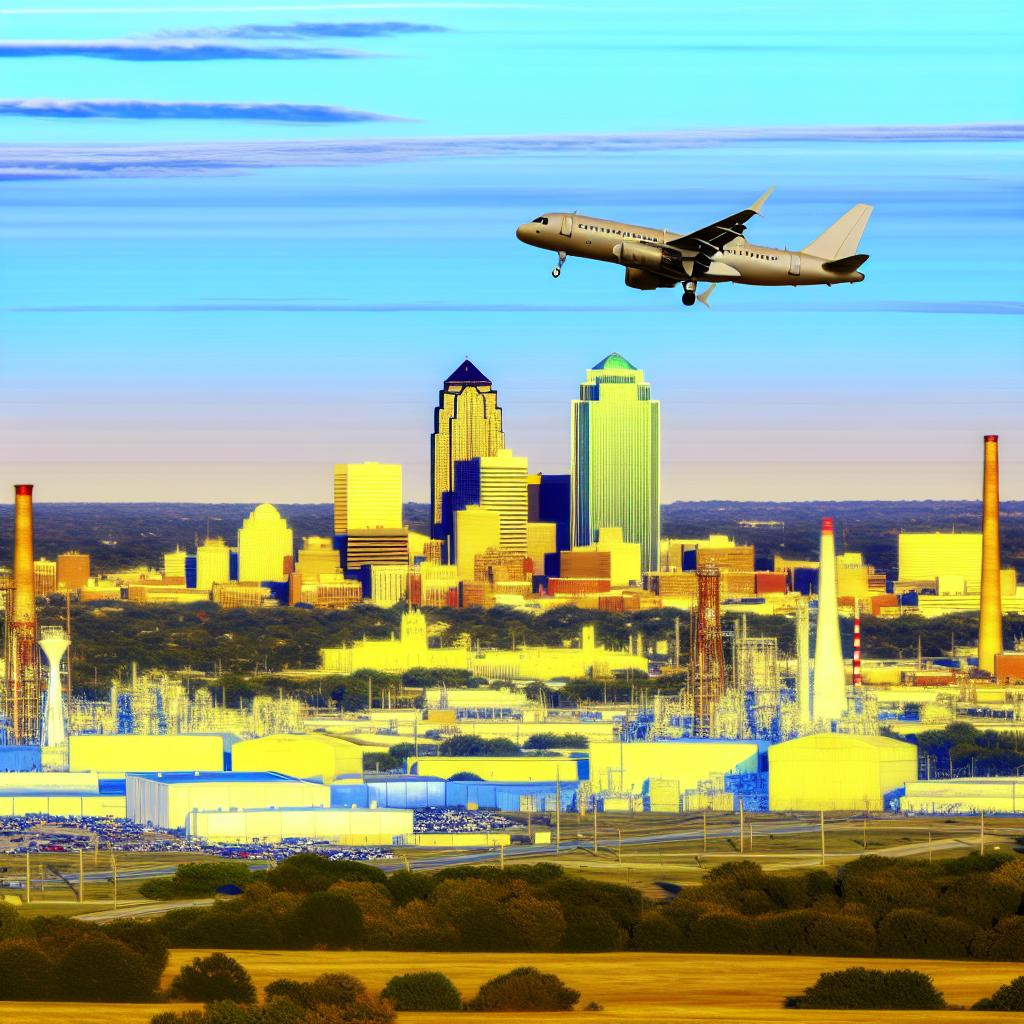The Role of the Aviation Industry in Wichita’s Development
Wichita, Kansas, often referred to as the “Air Capital of the World,” holds a storied place in the annals of aviation history. Its development from a modest trading post in the 19th century to a global leader in the aeronautics field is a testament to its strategic contributions and benefits. This evolution highlights the significant influence the aviation industry has had on the city’s economy and identity.
Early Beginnings of Aviation in Wichita
At the dawn of the 20th century, Wichita established itself as a pioneer within the budding aviation sector. Beginning around 1916, the city began to see the formation of its first aircraft companies. These early enterprises sought to capitalize on the favorable conditions presented by the locale. The city’s geographical advantages included expansive open spaces ideal for testing aircraft and a burgeoning industrial base eager to support new manufacturing endeavors. The presence of aviation pioneers such as Clyde Cessna and Walter Beech brought added credibility and innovation to Wichita’s nascent aviation industry, helping the city carve out an influential role in shaping early aviation milestones.
The Growth of “Little Aerospace” Companies
During the 1920s and 1930s, Wichita witnessed a remarkable proliferation of small, yet significant aircraft manufacturers, commonly referred to as “little aerospace” companies. These companies were instrumental in advancing not only aviation technology but also the manufacturing techniques that would become industry standards. The escalation in aircraft demand was driven by numerous factors, most notably the requirements of World War II. As military and civilian needs surged, these small firms expanded their production capabilities, playing a crucial role in the local economy and contributing to the war effort. This growth established a solid industrial base in Wichita, setting the stage for further development and innovation.
Key Players in Wichita’s Aviation Sector
The aviation sector in Wichita has been bolstered by several prominent manufacturers who have established deep roots in the city. Among these, Cessna and Beechcraft have been historically significant, with Beechcraft initially known as Beech Aircraft Corporation. Their portfolio includes a wide range of aircraft, from small private planes to military and larger commercial models, illustrating their extensive influence on the aviation industry. In later years, industry giants like Bombardier and Spirit AeroSystems have added to the landscape, further embedding Wichita’s position as a crucial hub for aviation expertise and manufacturing excellence.
Economic Impact of the Aviation Industry
The aviation industry substantially influences Wichita’s economic vitality by generating a multitude of jobs that span across various expertise levels. Positions in skilled engineering and assembly, alongside administrative roles, offer direct employment to local communities. The economic ripple effect extends beyond direct employment to create secondary market opportunities integral to the city’s economic health. These include the establishment of aviation training schools, suppliers of necessary equipment, and engineering firms that support and enhance industry needs.
An additional facet of the aviation industry’s economic impact is its contribution to research and development. The city is home to prominent institutions such as the National Institute for Aviation Research (NIAR) at Wichita State University. These organizations are engaged in pioneering projects that drive forward the innovation and technological advancements necessary to maintain a competitive edge within the global aviation industry.
Boeing, a dominant force in the aerospace sector, also exemplifies Wichita’s influence. For many years, Boeing’s presence in Wichita was a cornerstone of the local aviation industry. The company’s operations in the city not only bolstered economic activity but also played a significant role in shaping the trajectory of modern aviation.
Challenges and Future Prospects
While Wichita’s aviation legacy is robust, the industry nonetheless faces a myriad of challenges. Economic fluctuations on a global scale can directly affect aircraft sales and production. Furthermore, intense competition from international manufacturers necessitates an ongoing commitment to innovation and adaptability. For Wichita to maintain its esteemed position, it must continually embrace and integrate the latest technological advancements in aviation.
Looking to the future, optimism surrounds Wichita’s ability to remain a pivotal player in the aviation sector. With its solid foundation, extensive infrastructure, and a highly skilled workforce, the city remains poised to harness new opportunities. Emerging technologies such as electric propulsion systems and autonomous flight are areas of focus that could ensure Wichita’s leadership in the industry continues unabated.
In sum, the aviation industry holds a defining influence on Wichita’s economic and cultural landscape. As this sector progresses, its capacity for innovation and sustained adaptation ensures that Wichita’s legacy as the “Air Capital of the World” remains intact while continuously evolving to meet the demands of tomorrow.

